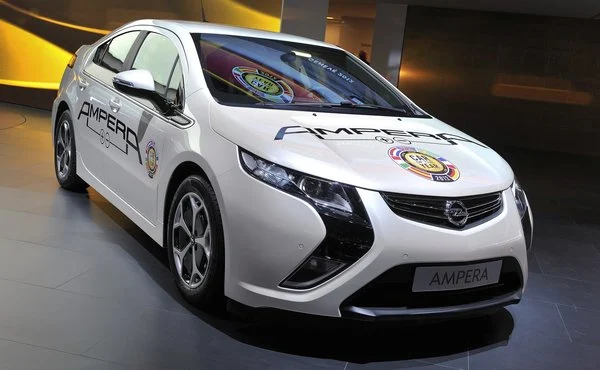For many years, major auto shows attendees could count on seeing new hybrid or electric vehicles being heavily marketed.
Nevertheless, the automotive economy hasn’t exactly been kind to electric vehicles and hybrids over the last few years, with sales waning despite government incentives. And just last week, General Motors suspended production of the Chevrolet Volt due to an excess availability on the market and slow sales.

The crux of the matter? It is often very difficult to justify the higher cost of high-tech EVs and hybrids compared to the new breed of fuel-efficient small cars.
Indeed, highly efficient small cars such as the Ford Focus and a Chevrolet Cruz Eco are frequently capable of matching the fuel economy offered by much more expensive hybrids.
At the same time, drivers who opt for traditional vehicles don’t have to worry about driving range as they would with an electric vehicle.
With consumers staying away from EVs and hybrids, major automakers around the world are putting less and less of an emphasis on promoting vehicles that aren’t selling.
“[Truthfully], reality is phasing in,” Peter Schwarzenbauer, a member of the management board of Audi and the German automaker’s head of marketing, told the The New York Times. “There are still more questions than answers.”
Of course, there also some high-profile issues damaging the image of hybrid and electric vehicles, such
as the potential battery fire risk during crash testing of the Volt last year that hurt GM sales figures. There are also concerns over battery performance – highlighted by reports that Tesla’s batteries in its EVs, such as the Roadster, would brick if it became completely discharged. The cost to replace the battery – in the case of a complete discharge – is the approximately the equivalent of buying a new gas-powered vehicle.
Unsuprisingly, the big focus at large auto shows has shifted to fuel-efficient traditional vehicles. And why not? These are the vehicles drivers purchase when fuel efficiency and costs are priorities.
The current state of the market seems to indicate that consumers aren’t ready to jump on electric and hybrid technology en masse, despite government discounts in the US and high-profile awards for vehicles such as the Volt and its Opel counterpart the Ampera.






